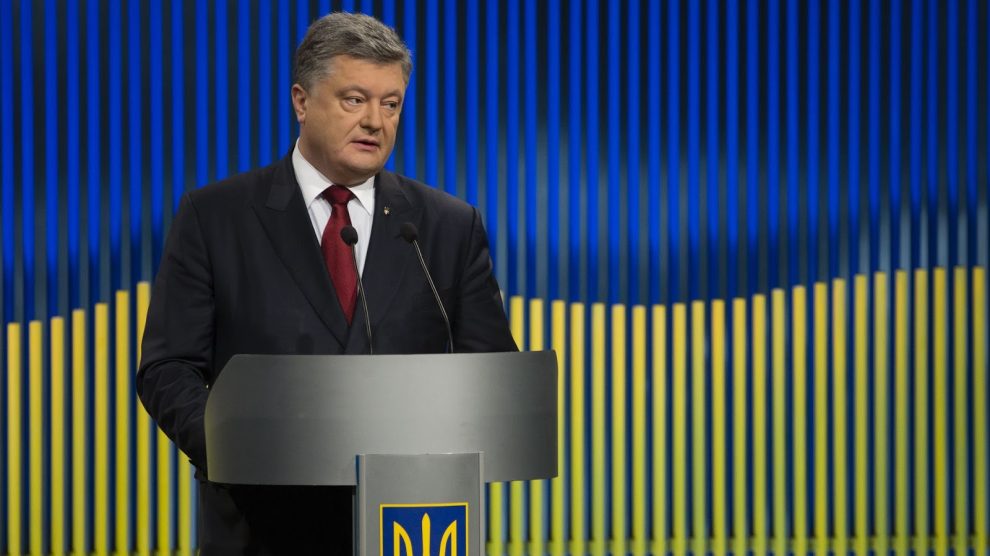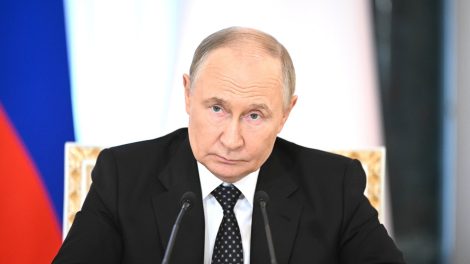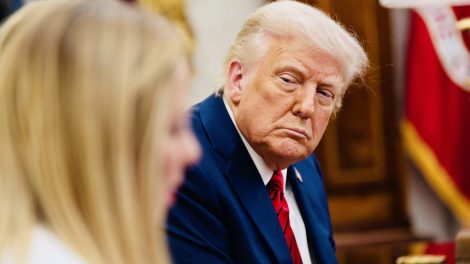The winter has gone while having taken with it the Kremlin’s favourite “horror story” about the European Union freezing to death without Siberian gas. The new ice age hasn’t come. Thanks to targeted efforts, governments have managed to successfully overcome energy dependence on Russia. The Muscovites have lost the huge European market – a steady flow of cash in the budget, for decades feeding Putin’s gerontocracy into neo-imperialistic aspirations.
At the end of the winter season the gas price was at a record low. For the first time since August 2021 it dropped below $450 per thousand cubic metres. Following the sharp decline in Russian gas consumption, a remarkably effective step was to introduce the price cap, first for crude oil and then for petroleum products. As a result, oil and gas revenues almost halved in January-February as compared to the same period last year. The Russian budget deficit for the two current months is almost equal to the deficit meant for a year. Thus, Russians have already covered 88% of the annual plan for this indicator.
Suffering pain from sanctions, the Kremlin has stepped up its disinformation campaign to convince the world that “sanctions do not work” and “everything goes on plan”. This is how the Kremlin’s bluff looks like. It has been intimidating the world with the protracted nature of the conflict and seeking both to reduce public support for sanctions in the Western societies and influence voters in democratic countries. Next year there will be the key elections in the US and the European Union. Putin is also pulling the war closer to his own elections in 2024, in order to present himself as the defender of Russia against the aggressive West. The war has been turned into his electoral banner, and what he considers his trump card should be knocked out of his hands this year.
If we go through the long list of hundreds of sanctions over the year, it is clear that there are three main blocks that have delivered pain and suffering to the Kremlin. Among them there are freezing Russian state assets worth more than $300 billion and assets of Russians on the Forbes list; cutting a number of Russian banks off the SWIFT system; the restrictive measures against the Russian energy sector, which used to provide half of Russia’s budget revenues. It all points at where to hit next in order to inflict maximum damage on the aggressor’s war machine.
First, it is time to cut the remaining Russian banks off the SWIFT system and freeze all international payments of the aggressor country and Putin’s entourage. The prospect of deSWIFTization shall face all those countries that support Russia in its war against Ukraine. As well as every banking institution in any country that deliberately helps the Putin regime to circumvent sanctions and sponsor the genocide of Ukrainians.
Second, all frozen assets of the Russian Federation and Russian oligarchs should be concentrated in a transparent fund under the direction of the US and the EU to ensure transparency and prevent them from falling into the hands of corrupt officials. This fund should be fully dedicated to supporting Ukraine.
And third, we should get rid of Russian oil and gas in all its forms, prices, cocktails and delivery routes. Russia’s blackmail should not be taken into account. Its share amounts to 7% of the global oil market and can be replaced by the UAE, Saudi Arabia, etc. As for petroleum products, about 30% of global refining capacity remains free. The global market is adapting to the sanctions against Russia without any shocks for its participants.
As a result of the asset freeze, the liquid part of Russia’s foreign exchange reserves is only $120 billion (out of $650 billion before the war). And even this balance could be exhausted as early as November-December if the current trend of reserve reduction continues.
Obviously, with a severe shortage of money, Putin will prioritise spending on his own “holy war” and will ask pensioners and other budget-dependent categories to be patient and “tighten their belts”. It is important to make Putin appear before his countrymen as a failing leader who is unable to fulfil his social contract, which is in the core of the public support in Russia for aggression against Ukraine and confrontation with the democratic world.
However, one shouldn’t wait for Ukrainian troops to “burn Moscow”. The Kremlin must fall from internal turmoil in Russia itself as a result of the bleeding of energy export revenues, peak imports, high inflation and collapse of gross domestic product. The monster of war, which was unleashed by Putin, must devour his regime.
How can we achieve this?
First. The price cap for oil and petroleum products must be constantly reduced.
Second. A supply quota and a price cap should be set for Russian LNG projects, which have become a goldmine for financing Putin’s army and his private pocket.
Third, the Suez Canal should be closed to oil and oil refinery cargoes of Russian origin. The route around Africa is longer, the freight is more expensive, the number of tankers is higher, the logistics costs are higher, and the profits are lower.
Fourth, the southern branch of the Druzhba pipeline, which still enriches Russia by $4 billion annually, shall be stopped. Alternatives could be developed for Hungary, the Czech Republic and Slovakia. For example, it can be a route through Croatia to cover their needs.
Fifth. We propose to impose sanctions not only on Russia’s huge shadow tanker fleet, but also to impose secondary sanctions on those who buy the oil transported by these vessels. At the same time, they should be identified as Russian not only by their flag, but also by their real ultimate beneficial owners.
The fight against the shadow tanker fleet is also important because, in addition to violating the sanctions regime, it generates billions of dollars of corrupt shadow revenues for bribing and shadow financing, including military spending on aggression against Ukraine and the entire civilised world. Here is something for the FATF to do as well.
Our Armed Forces have been encouraging both Ukrainians and Western decision makers to provide us with ever more weapons. The top priority needs are shells and other ammunition, artillery, tanks, fighter jets and long range missiles. The critical decisions are made on the battlefield at the cost of human losses, and it is important that the Western partners are increasing the supply of weapons to Ukraine. But to save as many lives as possible, we shall take steps to economically bleed Russia and cut off funding for its war machine.




